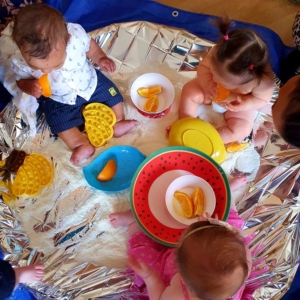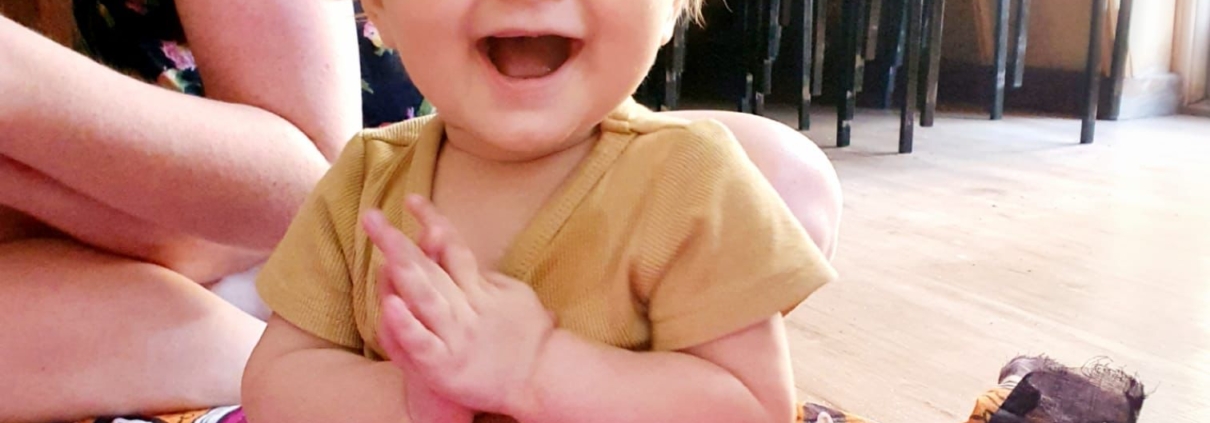Support Language Development
How can I help my baby to talk?
There are several ways you can help support your baby’s language development and encourage their talking skills:
- Talk to your baby: Engage in conversations with your baby throughout the day. Talk about what you’re doing, describe objects and events, and ask simple questions. Use a higher-pitched, sing-song voice and exaggerate your intonation to make it engaging and interesting for your baby.
- Respond and encourage: When your baby makes sounds or attempts to communicate, respond with enthusiasm and interest. Encourage their efforts by imitating their sounds and adding words to their babbling. For example, if your baby says “ba-ba,” you can respond with “Yes, that’s a ball! Ball, ball.”
- Read together: Regularly read books to your baby, even from a very young age. Choose books with simple and repetitive text, colourful pictures, and textures to engage their senses. Point to and name objects in the book and encourage your baby to turn the pages. This helps expand their vocabulary and understanding of language. Alternatively, come along to your nearest Adventure Babies class and let us bring a story to life!
- Sing songs and nursery rhymes: Singing exposes your baby to different rhythms, tones, and patterns of language. Songs and nursery rhymes often have repetitive and melodic phrases, which can be easier for babies to imitate and remember. Singing together also promotes bonding and helps your baby develop an ear for different sounds.
- Provide a language-rich environment: Surround your baby with a language-rich environment by talking to them throughout the day. Describe your activities, name objects, and narrate daily routines. You can also label items in your home, such as furniture, toys, and household items. This exposure to language helps build their vocabulary and understanding.
- Play and interact: Engage in interactive activities with your baby, such as peek-a-boo, tickling, and imitation games. These activities promote social interaction, turn-taking, and communication skills. Use gestures, facial expressions, and body language to enhance your communication with your baby.
- Limit screen time: Excessive screen time can interfere with language development in babies. It’s important to limit their exposure to screens and prioritize face-to-face interactions and real-life experiences instead.
Remember that every baby develops at their own pace, so be patient and supportive. If you have any concerns about your baby’s language development, consult with your GP or a speech-language pathologist for further guidance and support.










